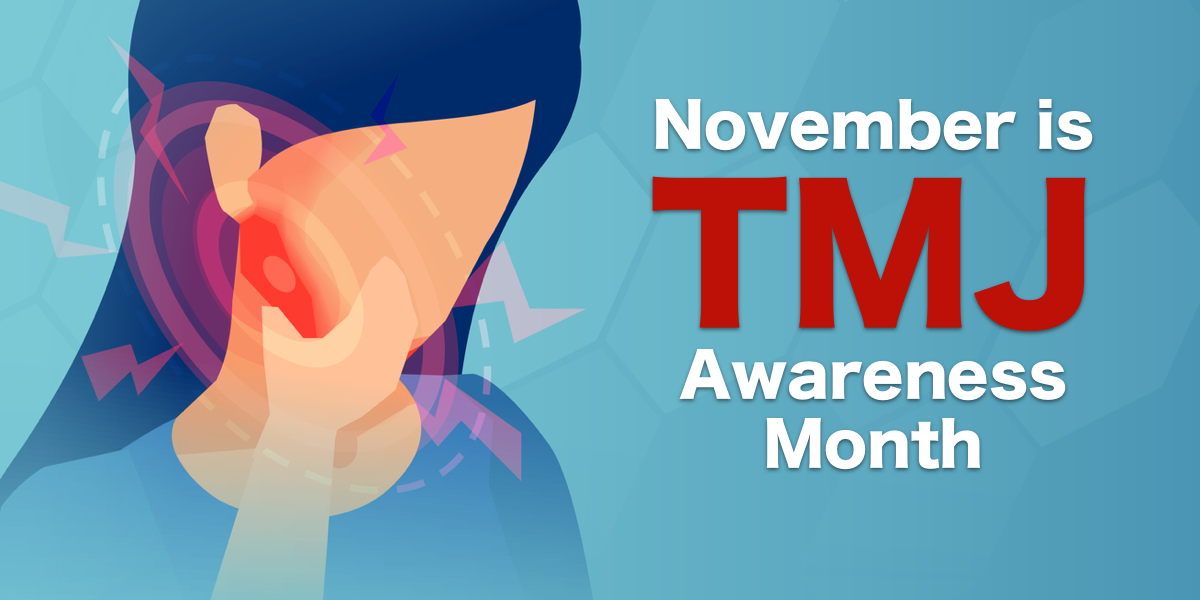If you struggle with your pain in your jaw muscles, neck and/or shoulders you may have Temporomandibular (TMJ) Disorder. Your jaw muscles may be stiff, have limited movement, or worse, your jaw locks. Ear pain, pressure, fullness, tinnitus can also occur as well as dizziness and vision problems. TMJ flares are common and treatment can be quite challenging. Like IC/BPS, more research is needed to understand why this occurs and what the most effective treatments are.
Jill’s TMJ Story
I first developed symptoms in my early 20’s, shortly after being rear ended in a car accident. With the resulting whiplash, my neck muscles became very, very tight and one morning, my jaw completely dislocated and was locked in place. Scary? You bet. A trip to urgent care provided muscle relaxants and a referral to a local TMJ specialist. Eventually, with anti-inflammatories, muscle relaxants and the elimination of hard, chewy foods, my TMJ calmed down but it never went away.
Just after COVID hit, my stress levels soared. I took to chewing gum for stress relief (yes that was stupid) and, yet again, my jaw nearly dislocated. Unfortunately, it has not gone away. Every time I lay on my left side or back, my jaw starts to slide out of position. My dentist believes that I have ligament laxity (a ligament has stretched) on the left side of my jaw because of very tight muscles on the right side compressing the joint. A cat scan also revealed that I have arthritis in my right jaw joint. Physical therapy has helped a little but I still can’t sleep in my bed. TMJ is a beast to deal with. Anyone else struggling?
Quick Facts about TMJ
- Approximately 36 million Americans suffer from TMJ and 90 percent of patients seeking treatment for TMJ are women of childbearing age.
- Studies show that 30-plus health conditions can coexist with TMJ disorders.
- The annual US economic impact of TMJ is $32 billion.
- There is scant evidence on the safety and efficacy of the 50-plus TMJ treatments.
- The National Institutes of Health invests less than 0.05% of its total annual budget on TMJ research – which is just $0.49 per each TMJ patient.
Chronic Overlapping Pain Conditions
It comes as no surprise that a significant number of IC/BPS patients struggle with TMJ. An estimated 85% of patients with TMJ suffer from both chronic and non-pain conditions throughout the body. Patients with 2 or more of the pain conditions below are usually diagnosed with “chronic overlapping pain conditions” (COPCs), aka widespread pain. These include:
- Ankylosing spondylitis in other body joints
- Asthma
- Back, neck, and joint pain
- Chronic fatigue syndrome
- Ehlers-Danlos syndrome
- Endometriosis
- Fibromyalgia
- Irritable bowel syndrome
- Headaches
- Heart disease
- Hypertension
- Interstitial cystitis/painful bladder syndrome
- Juvenile idiopathic arthritis in other body joints
- Neural/sensory conditions
- Osteoarthritis in other body joints
- Poor nutrition due to alerted jaw function and/or pain while chewing
- Psoriatic arthritis in other body joints
- Respiratory conditions (e.g., sinus trouble, allergies or hives, asthma, tuberculosis, breathing difficulties)
- Rheumatoid arthritis in other body joints
- Sinusitis
- Sjogren’s syndrome
- Sleep disorders (e.g., insomnia, poor sleep quality, longer sleep latency, lower sleep efficiency)
- Somatic and psychological symptoms (e.g., depression, anxiety and post-traumatic stress disorder)
- Systemic lupus erythematosus
- Tinnitus
- Vertigo
- Vulvodynia
How is IC/BPS related to a jaw disorder?
While I have always believed that my TMJ was triggered by whiplash, research studies have found that patients who struggle with widespread pain have an injured central nervous system, aka maladaption. One theory suggests that with our CNS in a constant state of fight or flight, muscle tension builds throughout the body, including the pelvic floor and neck, eventually resulting in jaw strain, TMJ symptoms, reduced blood supply, ischemia and, of course, IC symptoms. I can’t rule this out as a contributing factor because I am a former COPC patient with IC, IBS, vulvodynia, tinnitus and anxiety disorder. Only my TMJ and tinnitus are active at the moment. Anxiety comes and goes as well.
Treatment
The National Institutes of Health TMJ brochure strongly recommends using the most conservative, reversible treatments possible. Conservative treatments do not invade the tissues of the face, jaw, or joint, or involve surgery. Reversible treatments do not cause permanent changes in the structure or position of the jaw or teeth. If TMJ issues become persistent and severe, moving toward aggressive treatments does not necessarily ensure improvement of the symptoms.
Self care is important, such as eating soft foods, applying ice or moist heat, and avoiding extreme jaw movements (such as wide yawning, loud singing, and gum chewing).
Unfortunately, many medical and dental insurance plans do not cover TMJ treatments or only pay for some procedures. Until there are scientifically validated, safe and effective treatments, insurance companies will not pay for treatments that have questionable outcomes. In some situations, your insurance company will not cover costs because TMJ is classified by many insurance companies as a dental and not a medical condition. Contact your insurance company to see if they will cover the cost of a treatment being recommended to you.
For More Information:
The TMJ Association, the only non-profit organization dedicated to these disorders in the USA, has led the efforts to understand why chronic overlapping pain conditions develop. Christin Veasley is co-founder and director of the Chronic Pain Research Alliance. A pain patient herself, she has been a remarkable advocate for all of us! Visit their website at: http://www.tmj.org

